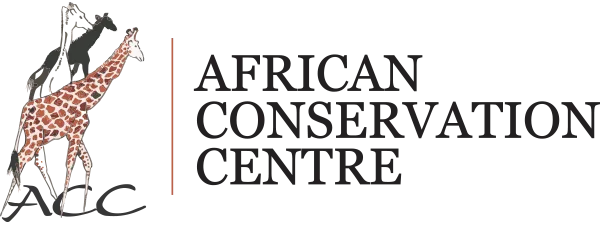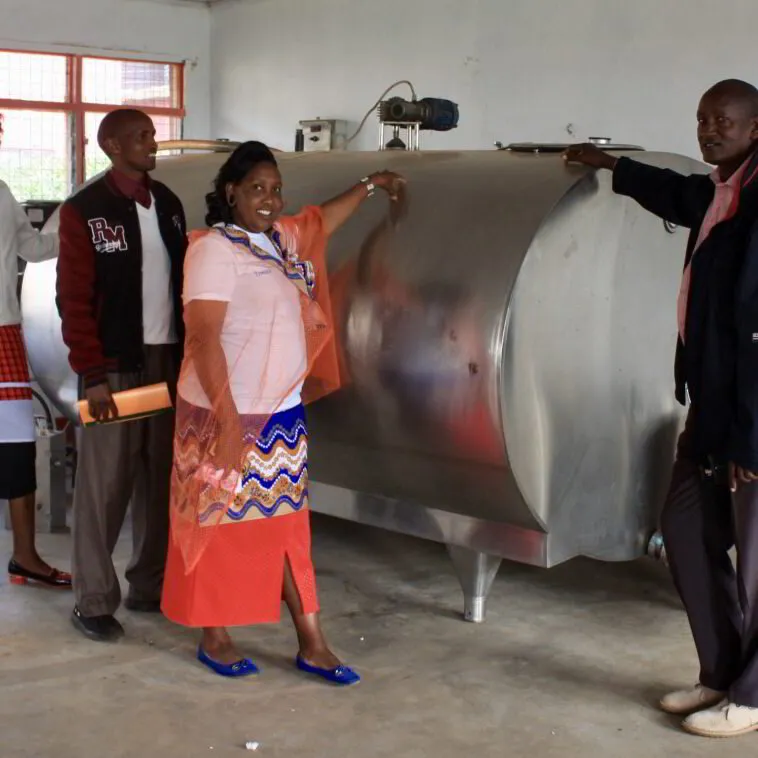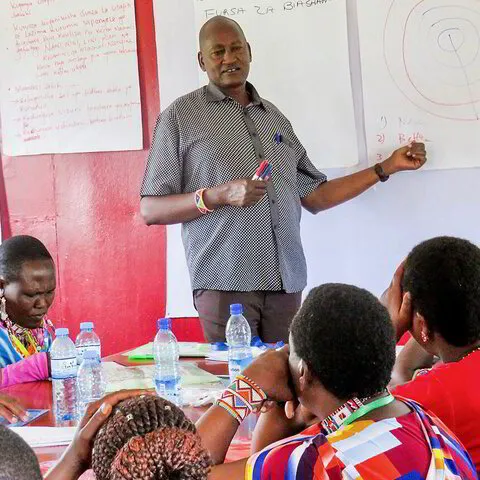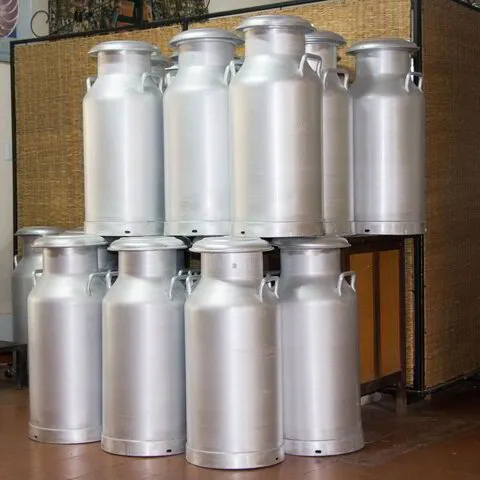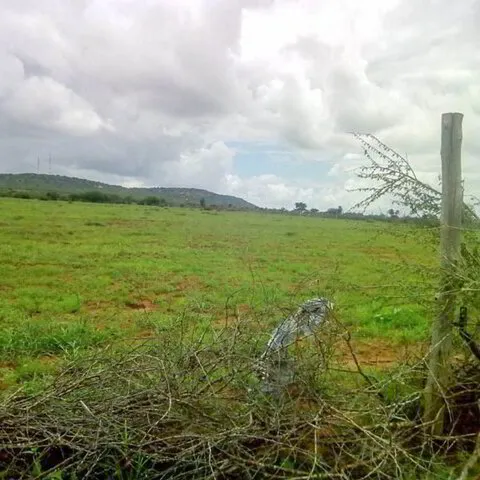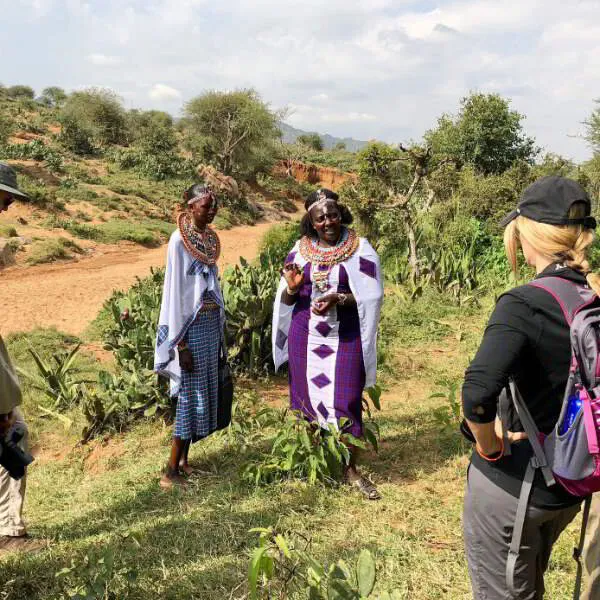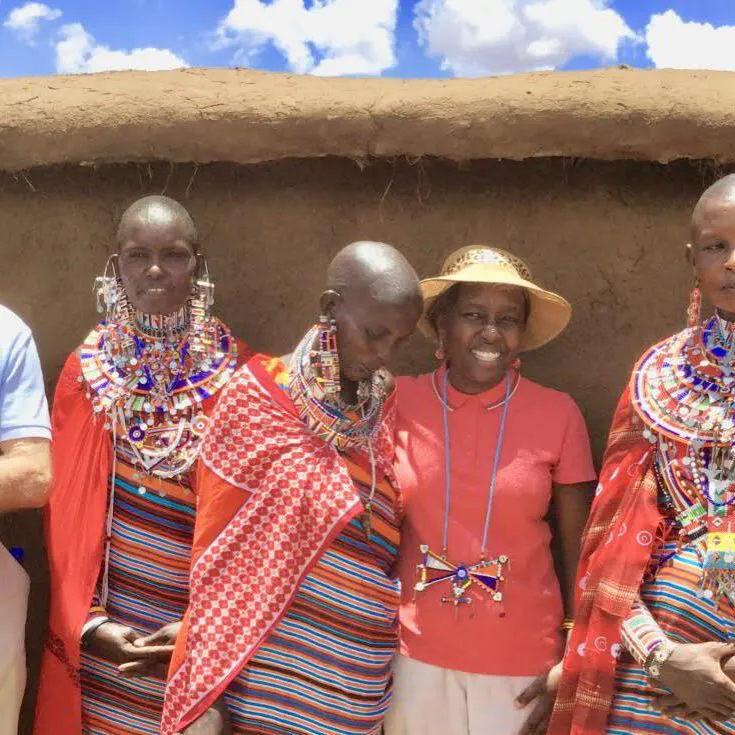Women's Enterprise
OVERVIEW
Increasing economic opportunities, particularly for women, is imperative to building sustainable conservation practices and more equitable societies. We are proud to support Maasai women-led initiatives in Kenya’s rich biodiverse landscapes of Amboseli, Laikipia and Maasai Mara that cultivate community-based conservation, reduce human-wildlife conflict, provide educational experiences, and improve the livelihoods of all community members. These women are advancing conservation efforts and strengthening Kenya’s sustainability—everyday.
AMBOSELI: NAROPIL MILK COOPERATIVE
The first Biodiversity Atlas of the Natural Capital of Kenya was launched on November 17, 2015 at a ceremony held at the Crown Plaza Hotel in Nairobi, Kenya. The Atlas project, led and coordinated by the African Conservation Centre (ACC) and commissioned by the Ministry of Environment, Natural Resources and Regional Development Authorities of the Government of Kenya, brought together national agencies, universities, non-government organizations, and academic institutions to create a detailed assessment of Kenya’s biodiversity.
Training
ACC Programs Manager, Johnson Sipitiek, coordinates business training for the women of Amboseli with the goal of ensuring the women know their business environment well so that they can plan well. ACC trained 30 women who will become peer educators—in turn training more than 1,000 women from their communities. The training is part of the CONNEKT cross border partnership project between ACC and OIKOS-EA, funded by the EU.
Milk Production & Storage
ACC donated 20 milk containers to the Naropil Milk Cooperative. ACC Programs Manager, Johnson Sipitiek, highlighted that the women view milk production as a business enterprise, changing their perspective from solely keeping cows as a cultural practice to gearing up to sell more than 100 litres per day!
Grass Reseeding & Harvesting
The communities near Amboseli have embarked on restoring degraded areas through grass reseeding and by improving their livestock breeds. Women at Osiram cultural boma, in Mbirikani, planted hay which, after harvesting, will be stored for use during the dry season. The women also harvested and sold 41 bags of grass seeds earning a total of Ksh 410,000 ($4,100).
LAIKIPIA: TWALA TENEBO CULTURAL CENTRE
Twala, a long-time conservation partner of ACC, located in a semi-arid area of northern Kenya, is run by a cooperative of six women groups, totaling over 200 members. The women earn their income through a variety of enterprises including renting accommodations to tourists and leasing their meeting facility to local and international organizations. They also design and sell Maasai beaded items for sale, offer educational and cultural experiences for visitors via their indigenous plant walks and baboon walks, and sell aloe and honey commercially. Their work supports their families as well as women and girls in the community that need additional support. Twala women care for abused girls and elderly women with no income, and support girls' education, maintaining a school onsite.
AMBOSELI: NOONKOTIAK COMMUNITY RESOURCE CENTRE
Noonkotiak was officially allocated land by Olgulului Group Ranch in 2013 and launched by ACC and partners in March of 2016. The Centre is a knowledge sharing hub, a women empowerment centre, and a research focal point for the entire Amboseli Ecosystem. The Women Empowerment Project within the Centre aims to help alleviate poverty. Currently, women in Kenya do the vast majority of agricultural work, livestock rearing, and marketing of food. Only 29% of the women are earning a formal wage, leaving most women to work in the informal sector without any federal support. The effect is severe with nearly 40 percent of household run solely by women who suffer from abject poverty. Collaborating with Amboseli Ecosystem Trust, we work with women in Noonkotiak to develop ecotourism that provides visitors with experiential cultural opportunities, integrating wildlife conservation with the Maasai way of life.
LAND SURVEYS & RESTORATION PROJECTS
ACC partnered with JUSTDIGGIT Foundation, Amboseli Conservation Program (ACP), and Amboseli Ecosystem Trust (AET) in the restoration of portions of Olgulului Ololorashi Group Ranch. It is the largest community owned group ranch out of six group ranches located in the Amboseli ecosystem. The 1,232km² group ranch acts as a buffer zone for wildlife roaming outside the national park.
ACC and partner organizations carried out land restoration activities which included management of soil erosion, grass reseeding, and digging water bunds that would increase water retention. The project also trained and supported three women groups (with a total of 104 members) about grass seed and hay production as a source of income.
To better understand Olgulului community knowledge, attitudes and practices related to biodiversity conservation, land and grazing management and the restoration project, ACC conducted a socio-economic survey.
Six research enumerators, a resources assessor, and a research assistant attended two-day training before the data collection exercise commenced. The survey was led by ACC’s Project Assistant, Fridah Mueni.
A total of 519 respondents were interviewed during the survey. 54 percent said livestock and livestock products were their main source of regular income. 62.4 percent of the respondents said they did not receive any income from conservation and tourism. Regarding human wildlife conflict, 47.2 percent of the respondents said that conflict had increased and 43.5 percent felt the incidences had decreased. Still, 68.8 percent mentioned that they had experienced incidences with the wildlife during the last year. These cases included damaged fences, crop damages, livestock deaths and human deaths.
The study also showed the community was aware that keeping large numbers of livestock can have negative impact on the environment, and there is need to adhere to regulated grazing management rules to conserve the rangelands.
The study recommended continuous assistance to the communities to ensure sustainable grazing practices for healthy rangelands. There is also a need to document and build on the existing knowledge, attitudes and practices. ACC and the implementing partner organizations will integrate the findings from the survey into future conservation projects in Amboseli.
CATTLE BREED IMPROVEMENT PROGRAMME
The Maasai pastoral community largely relies on livestock for their economic sustainability. Their livelihood is rooted in having large herds of free ranging cattle that share the same grazing areas with wildlife. However, land subdivision and fragmentation of open rangelands, increase in population and keeping large numbers of livestock has constrained the grazing spaces.
ACC through its Breed Improvement Programme advocates for quality versus quantity. This is where pastoralists keep fewer high-quality animals that appreciate in value. This approach ensures less pressure on the ecosystem, while generating more income for the pastoralists.
ACC launched the programme in 2018 by donating 10 bulls to Rombo Group Ranch and 10 bulls to Imbirikani Group Ranch. The goal was to improve the quality of livestock in the community by introducing a higher quality breed. However, three bulls died due to disease and two were killed by lions.
Despite the challenges, in December 2020, ACC organized a workshop for group ranch members where they shared their achievements and challenges. Participants shared the benefits of the bulls that have so far produced 198 high-quality calves for the community. One of the bull beneficiaries, Joel Lepiro, said he was able to get 46 calves from the breeding programme. He is delighted that the quality of his herd continues to improve.
The participants were trained in technology and innovation to support the breeding programme and encouraged to embrace livestock breeding and management practices that will ensure minimal production costs, use the rangelands sustainably, manage proper livestock records, and ensure high-quality livestock and products.
WATER MANAGEMENT IN MAGADI
Five years ago, ACC rolled out the Integrated Water Management (IWM) program along the Ewaso Ngiro South River basin in Magadi. Lack of rainfall over several years lowered water levels, making it a scarce commodity for people, livestock and wildlife. Competition for water has led to conflict among local communities. To help these communities collectively manage their water resources, ACC and the IWM program formed three new Water Resource User Associations (WRUAs) and connected with nine existing WRUAs. “When you wake up you need water to drink, bathe and farm,” said Moses Lemunge, the Secretary of the Entasopia Water Resource Users Association, emphasizing the importance of water in his community.
ACC partnered with the Ministry of Agriculture, Livestock and Fisheries to train farmers on modern methods of water irrigation, such as the use of sprinkler irrigation. Previously, farmers had flooded their farms, leading to evaporation and poor crops. “It is important to sensitize the community to the benefit of water resources, especially women since they are the main water users and suffer more in case of a shortage because they have to walk long distances to fetch water,” said Julius Muriuki, IWM’s Project Officer.
To show how people in other areas of Kenya had learned to farm sustainably, ACC brought community representatives on field visits to Laikipia and Naivasha. They also held workshops and community open-air meetings. The community embraced the IWM project and took up farming, mainly producing eggplants, okra, sweet potatoes, bananas, and assorted vegetables for local market and export.
With ACC’s guidance, community members have also undertaken beekeeping, goat rearing for milk production, and tree planting to conserve water catchment areas. ACC was instrumental in setting in motion the propagation of bamboo plants in the area. Bamboo reaches maturity in only three years and is valuable for protecting the soil, purifying water, and providing firewood. It can also be used to produce a variety of products, including baskets, furniture, and water pipes.
In just five years, ACC has directly impacted 11,700 households in Magadi, who now have access to clean water for farming, beekeeping, and livestock production. ACC continues to run the water project in partnership with the South Rift Association of Landowners (SORALO), a community-based initiative created to bring landowners together for the effective management of resources.
